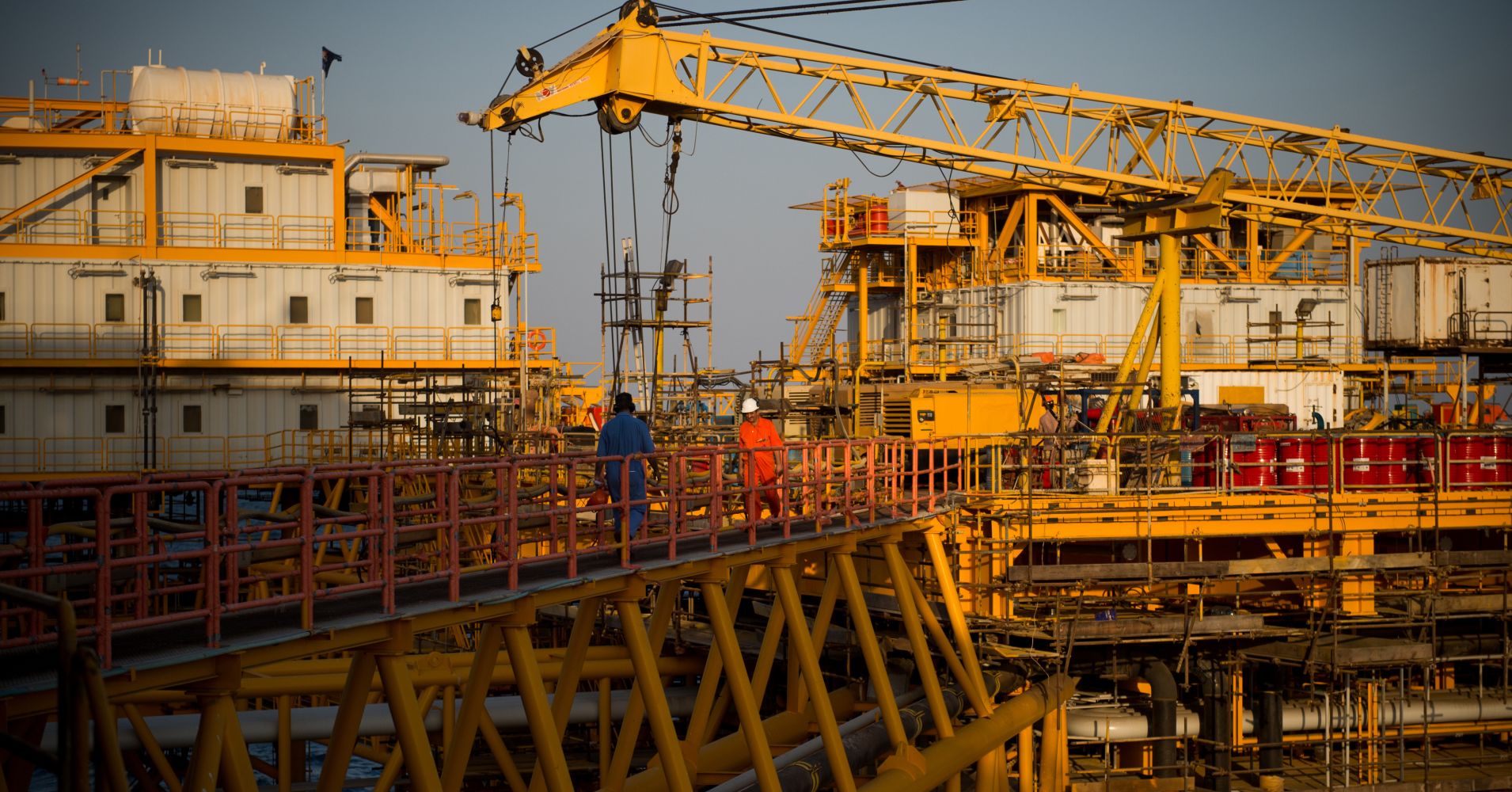Larry Fink not concerned about oil prices and Iran sanctions waivers

[ad_1]

Ali Mohammadi | Bloomberg | Getty Images
Workers cross walkways between zones aboard an offshore oil platform in the Persian Gulf’s Salman Oil Field, operated by the National Iranian Offshore Oil Co., near Lavan island, Iran, on Thursday, Jan. 5. 2017.
The State Department announced on Monday its intention to deny further sanctions waivers to countries that import Iranian crude, immediately sending the oil price up about 3%. In response, Iranian officials threatened to close the Strait of Hormuz, the conduit route for about 20% of all seaborne trade in crude and condensates.
But Fink, as well as Saudi Energy Minister Khalid al Falih, pointed to a rise in inventories in the Arab Gulf states as well as in the U.S. that they believe will offset the tightening supply from Iran.
“As the (Saudi) oil minister suggested, there is greater inventory, so if there’s a time to be moving forward and make the region even more secure, it looks like this is probably a very good time to do that,” Fink said.
Al Falih, speaking to a panel audience at the same event, made assurances that OPEC members would “not leave customers scrambling” if significant oil supplies came off the market.
Saudi Arabia “will be relied upon to work with other producers to keep markets adequately supplied. Indeed, rumors are rife that OPEC’s core Arab members are readying themselves to raise output,” PVM Oil Associates analyst Stephen Brennock said in a research note Wednesday. “As such, Trump’s doubling down on his anti-Iran strategy may have a muted impact on global oil balances.”
The deficit in Iranian crude may also be countered by U.S. oil inventories, which are expected to grow by 1.6 million bpd this year, according to the International Energy Agency.
Still, the near term outlook is bullish for prices, Brennock said, “because OPEC data suggest that with the organization producing just over 30 million bpd, the current quarter should see global oil stocks fall by 760,000 bpd and (in the third quarter) by 930,000 bpd.”
Other forecasters like Barclays see a substantial upside price risk due to the revoking of sanctions waivers, which had previously been given to eight countries that together constituted more than 75% of global imports of Iranian oil.
“While Saudi Arabia, UAE and other OPEC countries will likely fill the gap created by lower Iranian exports … it will come at the cost of a significant reduction in the spare capacity and also increase the risks of a potential conflict in the Middle East,” Barclays said in a daily note Wednesday.
“All else equal, if Iranian exports are reduced to zero, it would imply at least a $5/barrel upside to our current $70/barrel average price forecast for Brent this year.”
Source link






